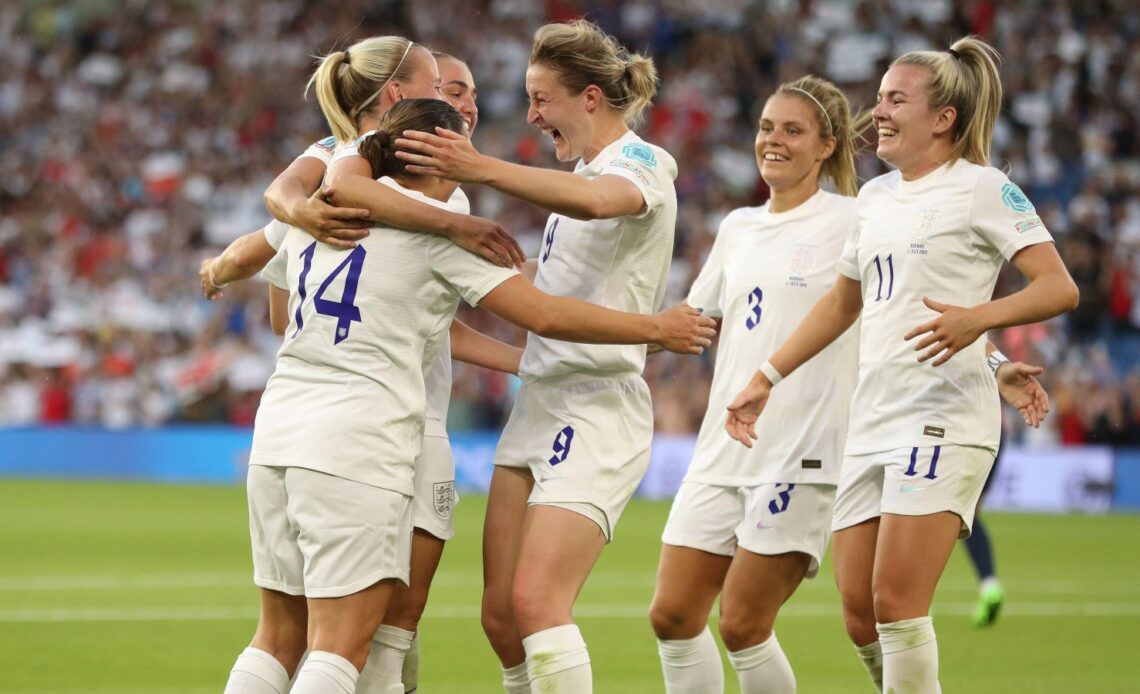England have just had arguably their greatest ever result in the women’s game, but why was their team entirely white, and will this change?
It seems almost churlish to mention it at this precise moment in time. England have, after all, just recorded what is probably their finest ever result. Although not quite the royalty of women’s football that they once were – they were Olympic gold medallists, World Cup winners and European champions between between 1993 and 2000 – Norway remain a strong team and one that England had been expected to find their most difficult group game at this summer’s European Championship.
In a blistering display reminiscent of the Germany men’s team swatting aside of Brazil in the semi-finals of the 2014 World Cup, England ran up six goals by half-time to ensure their qualification to the quarter-finals with a game to spare by winning 8-0. The concerns that followed a slightly sluggish performance in their 1-0 opening win against Austria already seem like a distant memory.
But while the performances of the England team at this tournament have been obviously impressive, questions have been asked about the ethnic make-up of this team. The England team that started the Norway match was entirely white. This was the same against Austria, with all three of the substitutes introduced during that match also Caucasian. But why should this be, and what can be done about it?
1) This is not just a blip or a statistical anomaly
It is tempting to think that this could be little more than a generational fluke, that the best players are being selected and that this should really be the end of the matter, but the statistics back up the fact that this isn’t the case, and never really has been. The men’s England squad for Euro 2020 featured 11 players out of 26 (42%) of black or mixed heritage, while in the decade from 2010 to 2020, out of 67 men’s international players, 33 of them have been black (49%). In the current England women’s squad there are just two players of black or mixed heritage – Nikita Parris and Demi Stokes – while over that period from 2010 to 2020, of the 72 players selected to play for the national team just 14 (19%) were black.
2) The gentrification of elite football has had unintended consequences for representation
The obvious explanation for such poor ethnic representation is that there are so few black players in the Women’s Super League. At present in the Premier League, 43% of players…
Click Here to Read the Full Original Article at Football365…

